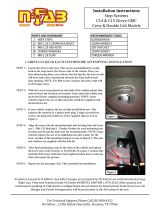
guidelines (ICNIRP
1
) on exposure to radio frequencies.
These guidelines, which are based on various studies
and research, have been developed by independent
scientific organisations to ensure the safety of
everyone who uses a mobile phone.
The safety information on exposure to radio waves
uses a unit of measurement known as SAR (Specific
Absorption Rate). The international guidelines have
set this limit at 2W/kg*. The phone is used in standard
operating positions when being tested for its SAR.
1
International Commission on Non-Ionising Radiation
Protection
Although the SAR is determined using the highest
power level, the phone’s real rate of specific
absorption whilst in operation may be well below the
maximum value.
A phone is designed to operate at different power
levels so that it only uses the power it needs to be
connected to the network.
In addition, all models of phone must undergo tests
before being marketed to ensure compliance with the
European R&TTE directive.
This directive publishes strict rules for guaranteeing
the safety of users and for preventing any risks to
health.
The maximum SAR value tested on this device when
used in its normal position at the ear is 0.378 W/kg and
0.966 W/kg when used close to the body, at a minimum
distance of 1.5 cm. It complies with the rules on
exposure to radio frequencies when used in its normal
position at the ear or at a minimum distance of 1.5
cm from the body. The device uses a high-quality
network connection for transmitting files, data and
messages. On occasion, the transmission of files
or messages may be delayed until the connection
is available. When this is the case, be sure to follow
the instructions regarding the separation distance
for establishing the transmission. If you use a case,




















